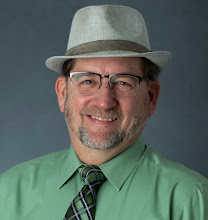This morning - though not that long ago I would have insisted that it be called last night - I found myself at the beach well before 5 am. The vast tranquility engulfed my spirit, as I felt my feet drawn to that sweet band of wet sand which welcomes wave after wave of incoming tide, in persistent unpredictable patterns of advance and retreat. A soothing calm began to wash over my chaotic thoughts, as my legs propelled me northward, the endless sea to my right, keeping my feet always in the range of uncertainty, sometimes splashed by the sprawling surf, sometimes left untouched and alone.
The full moon beamed brightly from my left; its light played tricks on my eyes, as it danced and bounced off the changing contour of the subtle waves. It seemed I could sense the moon pulling both me and the tide, as I veered slightly from left to right, not unsteady or unsure, but unscripted and unhindered. Sometimes walking sideways, sometimes backwards, with feet finding playful foundation at every unwatched step and skip, I simply continued to move up the beach, toward the pier, with no particular purpose or cause, except to be a part of this place, and to enjoy its free expression.
A hint of rose began to appear above the edge of the sea, distant clouds diffusing its glow. My eyes turned to the moon, knowing that it had already seen the brightness that awaited me, and was itself little more than a reflection of that same brightness. Still I wondered if there was not some sadness, some envy, sensing that its wondrous shine would soon be diminished and ignored, made irrelevant by the very star it both reflected and opposed. The rose tint lingered longer than I expected, and the moon retained its dominance with apparent pride. I changed my pace slightly, slowing and turning more often, to stare at the silent drama unfolding on the twin horizons.
As I approached the pier, my eyes grew annoyed at the interference of artificial light. Incandescent bulbs above me, purposeful in their own way, waged a silly war with the greater lights from east and west. I wanted to move away from them, to avoid their boastful interruptions. The pier itself provided that opportunity, as I sought refuge underneath it, among the rocks, its wooden boards blocking the false lights above, allowing me to gaze fully and undistracted upon the spreading dawn.
Only mildly aware of the passage of time, I began to notice other people on the beach. Not resentful of their presence, it nevertheless made me mindful of how much I had treasured the solitude, the vastness of endless beach and ocean, without competition for its enjoyment. I spotted a cliche - an elderly man in long khaki shorts, a white t-shirt and a wide-brimmed hat, scanning a thin stripe of sand with his metal detector. A young teenage boy walked by, not far from me. He returned my simple welcoming nod, turned to face the dawn, gazed at it with me for a brief time, then returned the way he had come. Others arrived, scattering randomly near the water's edge, drawn perhaps by the same forces that drew me, seeking the peace and joy of an emerging day, from a wide assortment of unspoken needs.
I abandoned my post without clear reason, and began the return journey southward. The sand, water, and light commanded my attention less now, as the forms and faces of other persons began to draw my fleeting interest - two women doing yoga, men of various ages jogging at different speeds, a man struggling to cast his line far out into the sea. A smile warmed my face, as I spotted a golden retriever playing happily in the waves, his master nearby, nodding in joyful approval. And in the spaces between the faces, in the moments not distracted, my gaze returned to the two horizons.
Then, at the next glance, it appeared. It had already appeared, barely, just before I saw it - a thin arc of fire, constant and fixed, becoming ever more visible, as the horizon turned and bowed to its majesty. I stopped in simple wonder, as I suspect did all around me, amazed at how quickly the unseen became seen. The thin arc was quickly resolved into a half-circle, then three-quarters, then full. As sky rejoined sky beneath the flaming sphere, my gaze returned once more to the west. For that moment, and not much more, the moon retained its brilliance. Twin lights in opposite skies, briefly equal in size and radiance, positioned in perfect symmetry above the edges of all I could see.
And then my legs resumed their pace, along the path of dancing waters. One light had become two, and just as quickly, light was everywhere. More people emerged, and more creatures. A family of sandpipers searched for food, unbothered by my near passing. People walked and jogged past and beside, some with gazes fixed, others returning a gentle greeting. My treasured solitude was as diminished as the moon's glow, washed away in the vibrance of an emerging new day. And my morning journey was complete.

